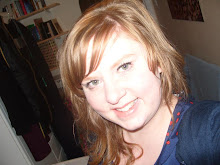Today I'm bringing you something a bit different. Long-time readers of my blog will have read my posts about my job, but I wanted to talk about it today in particular because 2nd April (since 2008 at least) is known as World Autism Awareness Day. And since I'm an Autism Support Worker, I figured it's part of my job to spread the word and raise awareness about what has been referred as: "The Invisible Disability" and try to dispel some of the myths about Autism and ASDs.

1. What is autism?
Autism is a lifelong, pervasive developmental disorder which affects people in three main areas: communication, social imagination and flexible thinking. These are known as the "Triad of Impairments" (I have a bit of an issue calling them impairments but we'll get to that later...). People with autism may also have sensory processing difficulties, e.g. a dislike of bright light, difficulty seeing certain colours, auditory processing problems and more. It is usually (and I mean USUALLY, but not always) diagnosed in childhood and will be a part of that person's life for their whole life. The conditions were first outlined by Leo Kanner and Hans Asperger in the 1940s in their respective research and research is contributing to our growing knowledge of autism all the time.
2. Isn't autism just a childhood disease?
In short, no. As I said above, if you have autism as a child, you will have it as an adult. It's not something a person can 'grow out of' or 'recover from'. Also it isn't a disease. Fun fact: in France, autism is classed as a disease (again, I will go into why I rankle at the use of the word disease in conjuction with autism at the end.) In childhood, with support from family, friends, medical professionals, schools and charities such as Scottish Autism and the National Autistic Society, you can seek help and advice, look into what support would improve communication, enhance development and give your child the skills they need to live the life they want.
In adulthood, the needs are the same. They also need support with communication and development; it's not just about teaching coping strategies. People with autism shouldn't have to just cope or struggle through life. I work for Scottish Autism, and our motto is:
"Enabling people living with autism in Scotland through the whole life journey."
As a charity we look at ways to support children and adults to become as independent as they possibly can. It's about teaching people with autism the skills they need to be themselves, their own person.
3. Aren't all people with autism geniuses like that guy in "Rain Man"?
No, not all people with autism are 'savants'; people with autism are more likely to have moderate learning needs (I refuse to call it a disability. Again, refer to the end...). However that is not to say that people with autism don't have their own talents and skills to offer. For example I work with a person who can look at any coastal view in the UK and tell you exactly where it is and know all about said view, lighthouses and surrounding places of interest. I also work with someone who loves musicals and can sing any song from a musical you name with great gusto. These same people are good cooks and bakers and are great with crafts. They might not be savants but they are uniquely skilled and talented and these are things which should be nurtured.
4. I thought autism was caused by: MMR vaccines, bad parenting, genetics, [insert cause here] etc.?
At the moment, autism has no known cause. It's generally known that autism is caused by developmental abnormalities in the brain; something in the brain chemistry affects the person's communication, social understanding and flexible thinking. Because autism has a tendency (though not always) to run in families, a lot of people think autism is genetic, yet researchers have never found conclusive proof of one gene etc. causing autism. Others think environmental factors in childhood are a cause; I once heard a theory that children growing up in cluttered, busy homes were more prone to autism (I have no idea where, I'm just reiterating this theory!). My personal opinion is that it's a mixture of factors that it's going to take years to figure out.
So that's some of the main myths surrounding autism clarified, but just one more thing...
Remember how I said I had an issue with the words: impairment, disease and disability? There's a reason I really hate these words being used in relation to autism. This is because they all have negative implications; impairment and disability imply that you are hindered by your condition, that you as a human being are somehow defective. With disease, this gives people the false impression that autism is something wrong that has to be cured to help someone. In my experience in working with adults ith autism this is simply not the case; everyone has the potential to learn and to contribute their skills, all they need is a chance so I think using words like disability and impairment just tries to write them off.
I hope you've enjoyed reading this blog post and that you now know a little more about autism. However I would advise finding out more on your own because what I've told you today is just the tip of the iceberg; there's so much to know about autism so go have a nosey!
Some further reading suggestions:
Books:
Asperger, H. (1944/1991). Autistic psychopathy in childhood. Translated in U. Frith (Ed), Autism and Asperger Syndrome (pp37-92). Cambridge: Cambridge University Press.
Kanner, L. (1943). Autistic disturbances of affective contact. Nervous Child, 2, 217 – 250.
Grandin, Temple: Emergence, Labelled Autistic.
Websites:
Debi Brown: www.aspiedebi.com
Scottish Autism: www.scottishautism.org
National Autistic Society: www.autism.org.uk
Today, the Independent newspaper in the UK has an insert all about autism and charities supporting people with autism throught the UK. I highly recommend giving it a read!
*NB - I don't pretend to be an expert on autism, these are just things I've learned/realised along the way!*





No comments:
Post a Comment